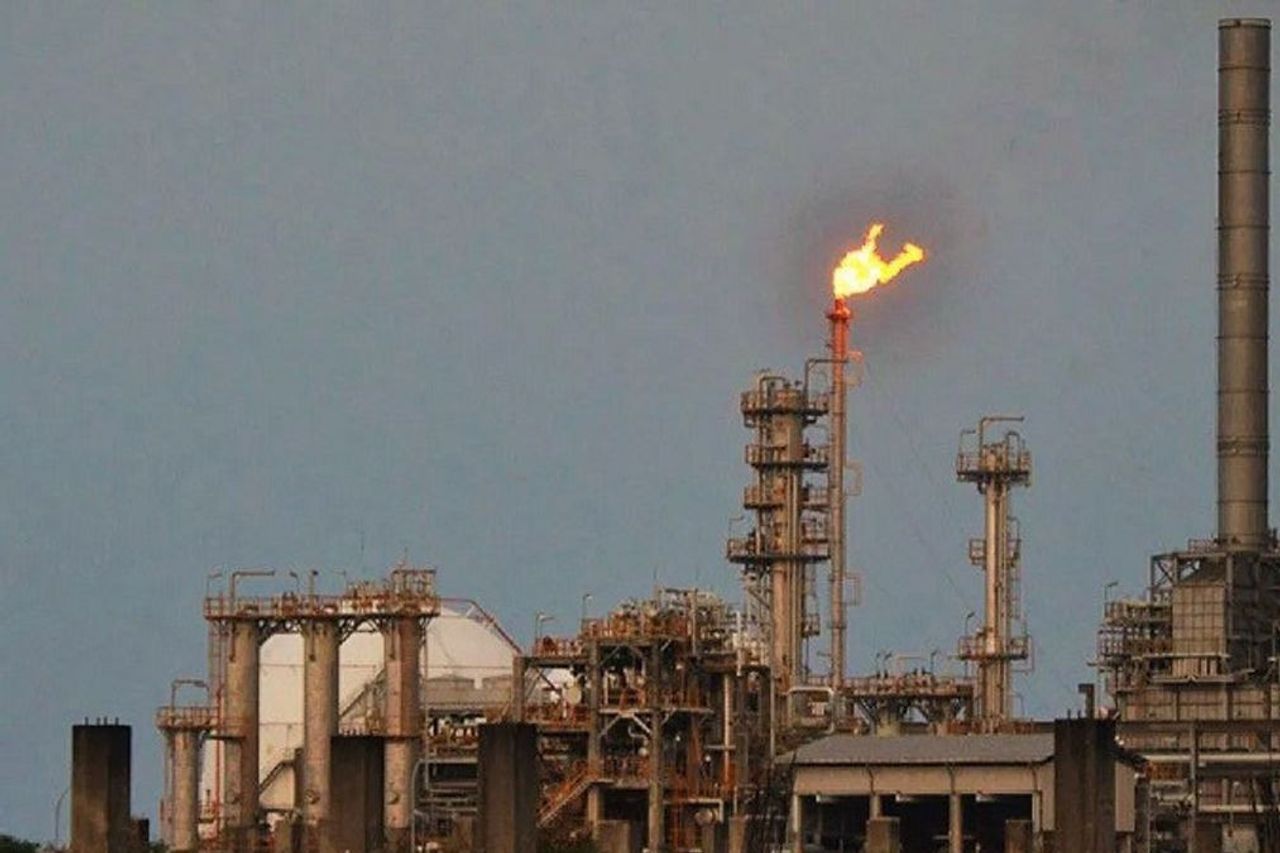As tensions between Israel and Iran continue to escalate, the potential impact on the oil market cannot be ignored. With both countries being key players in the Middle East and significant producers of oil, any conflict between them could have far-reaching consequences for global energy markets. The Israel-Iran conflict has the potential to disrupt the flow of oil from the region, leading to supply shortages and a subsequent increase in prices.
This could have a profound impact on oil-consuming nations around the world, affecting everything from transportation costs to the prices of everyday goods. Beyond the immediate effects on oil prices, the escalating conflict could also destabilize the entire nanastoto region. The possibility of military action or retaliation from other countries cannot be ruled out, which could further disrupt oil production and transportation infrastructure. In conclusion, the Israel-Iran conflict has the potential to significantly impact the oil market, with ripple effects felt around the world. As tensions rise, industry experts and policymakers are closely monitoring the situation, aware of the potential consequences for global energy security.

Overview of the Israel-Iran conflict
Contents
- 1 Overview of the Israel-Iran conflict
- 2 Historical context of the conflict
- 3 The role of oil in the conflict
- 4 Impact on global oil prices
- 5 Effect on oil-producing countries
- 6 Impact on oil-consuming countries
- 7 Strategies for mitigating the impact
- 8 Geopolitical implications of the conflict
- 9 Potential resolutions and their impact on the oil market
- 10 Conclusion
The conflict between Israel and Iran, two Middle East nations, has been a topic of global concern for many years. The dispute, rooted in political, religious, and territorial disagreements, continues to escalate, threatening not just the peace and stability of the region, but also the world’s oil supply. The animosity between the two nations is not a recent development; it has a deep-seated historical context.
In the first few decades after Israel’s establishment in 1948, Iran was one of the few Muslim-majority countries to recognize Israel as a sovereign state. However, this changed dramatically after the 1979 Iranian Revolution, which replaced Iran’s pro-Western monarchy with a theocratic Islamic Republic. Since then, the two countries have been locked in a bitter conflict, with Iran often questioning Israel’s right to exist.
The Israel-Iran conflict is marked by an exchange of threats, proxy wars, and militant activities, making it a major hotspot in the Middle East. This tension not only affects the political landscape but also threatens to disrupt the global oil market given the significant oil reserves both countries possess.
Historical context of the conflict
To fully appreciate the potential impact of the Israel-Iran conflict on the oil market, one must first understand the historical context of the conflict. The animosity between Israel and Iran is a product of historical events and shifts in power dynamics, with implications that ripple through the global community.
Initially, the relationship between Israel and Iran was cordial, marked by diplomatic ties and mutual cooperation. However, the Iranian Revolution of 1979 marked a significant turning point. The new Islamic regime in Iran severed all diplomatic ties with Israel and began supporting anti-Israel militant groups in the region.
Since then, the Israel-Iran conflict has evolved into a complex web of proxy wars, cyber-attacks, and military strikes. It is against this backdrop of escalating tensions and an increasingly volatile political landscape that we must consider the role of oil resources in the conflict and the potential implications for global oil markets.
The role of oil in the conflict
Oil has always been a strategic asset in the Middle East, a region that holds almost half of the world’s proven oil reserves. Both Israel and Iran are significant players in the oil market, and any disruption in their oil production or supply could have far-reaching consequences.
Iran, the third-largest producer in the Organization of the Petroleum Exporting Countries (OPEC), has vast oil reserves. Its oil industry, however, has been hampered by sanctions imposed by Western nations over its nuclear program. Israel, on the other hand, does not have significant oil reserves but has been investing heavily in natural gas exploration.
The potential for the conflict to disrupt oil supply routes is a significant concern. The Strait of Hormuz, a key transit route for global oil supplies, is located in the Persian Gulf near Iran. Any military confrontation in this region could disrupt oil shipments, leading to a spike in global oil prices.

Impact on global oil prices
The Israel-Iran conflict’s potential to disrupt oil supply routes could significantly impact global oil prices. An increase in oil prices could have a domino effect on the global economy, influencing everything from transportation costs to the prices of everyday goods.
A sudden spike in oil prices could trigger inflation, hurt consumer spending, and slow economic growth. Higher oil prices would also increase the cost of energy, leading to higher production and transportation costs for businesses. This, in turn, could result in higher prices for consumers.
Moreover, volatility in oil prices could cause uncertainty in the financial markets, potentially leading to a decrease in investment and economic instability. Therefore, the Israel-Iran conflict’s potential impact on global oil prices could have far-reaching consequences for the global economy.
Effect on oil-producing countries
The Israel-Iran conflict could also have significant implications for oil-producing countries. Any disruption in oil supply could lead to an increase in oil prices, benefiting oil-exporting countries as their revenues would rise. However, this could also result in increased volatility in the oil market, creating uncertainty for these countries.
Countries like Saudi Arabia, Russia, and the United States, the world’s top oil producers, could potentially fill in the gap created by a disruption in oil supply from the Middle East. However, their ability to do so would depend on their production capacity and willingness to increase output.
On the other hand, oil-producing countries in the Middle East, such as Iraq and the United Arab Emirates, could be negatively impacted by any military conflict in the region. They could see their oil infrastructure damaged or their oil production and export activities disrupted, which could have severe economic consequences.
Impact on oil-consuming countries
Oil-consuming countries, particularly those heavily dependent on Middle East oil, could be severely affected by any disruption in oil supply resulting from the Israel-Iran conflict. These countries could face higher oil prices and potential energy shortages.
Countries like China, India, and many European nations, which import significant quantities of oil from the Middle East, could be particularly vulnerable. Higher oil prices would lead to increased energy costs, which could hurt economic growth and lead to inflation.
Moreover, potential energy shortages could disrupt daily life and economic activities in these countries. Governments may be forced to implement energy rationing or other emergency measures, which could disrupt businesses and households.
Strategies for mitigating the impact
Given the potential impact of the Israel-Iran conflict on the global oil market, it is critical for countries and companies to have strategies in place to mitigate the potential effects. These strategies could include diversifying energy sources, increasing domestic oil production, or investing in renewable energy.
Oil-consuming countries could look to reduce their dependence on Middle East oil by diversifying their energy sources. This could involve increasing imports from other regions or investing in domestic oil production.
For oil companies, investing in renewable energy could be a smart strategy. As the world moves towards cleaner energy sources, renewable energy is becoming increasingly important. By investing in renewable energy, companies could reduce their exposure to volatility in the oil market.

Geopolitical implications of the conflict
The Israel-Iran conflict has significant geopolitical implications, not just for the Middle East, but for the entire world. The potential for military action or retaliation from other countries cannot be ruled out, which could further disrupt oil production and transportation infrastructure.
Moreover, the conflict could destabilize the entire region, potentially leading to a broader conflict involving other countries. This could have far-reaching consequences, not just for global energy security, but for global security more broadly.
The international community, therefore, has a vested interest in diffusing tensions and finding a peaceful resolution to the conflict. This will require diplomacy, negotiation, and potentially the involvement of international organizations such as the United Nations.
Potential resolutions and their impact on the oil market
Potential resolutions to the Israel-Iran conflict could range from diplomatic negotiations to military intervention. Each of these resolutions could have different implications for the oil market.
A peaceful resolution through diplomatic negotiations could lead to stability in the region and reduce the risk of disruption to oil supplies. This could lead to a decrease in oil prices, benefiting oil-consuming countries.
On the other hand, a military intervention could escalate the conflict and lead to further disruption of oil supplies. This could result in a spike in oil prices, negatively impacting oil-consuming countries and the global economy.
Conclusion
In conclusion, the Israel-Iran conflict has the potential to significantly impact the global oil market. As tensions rise, industry experts, policymakers, and the international community must closely monitor the situation and prepare for potential disruptions to oil supply.
If you found this analysis insightful and are interested in exploring more about how other sectors are influenced by various factors, consider reading our article on Manufacturing Processes for a deeper understanding of industrial impacts and innovations.





